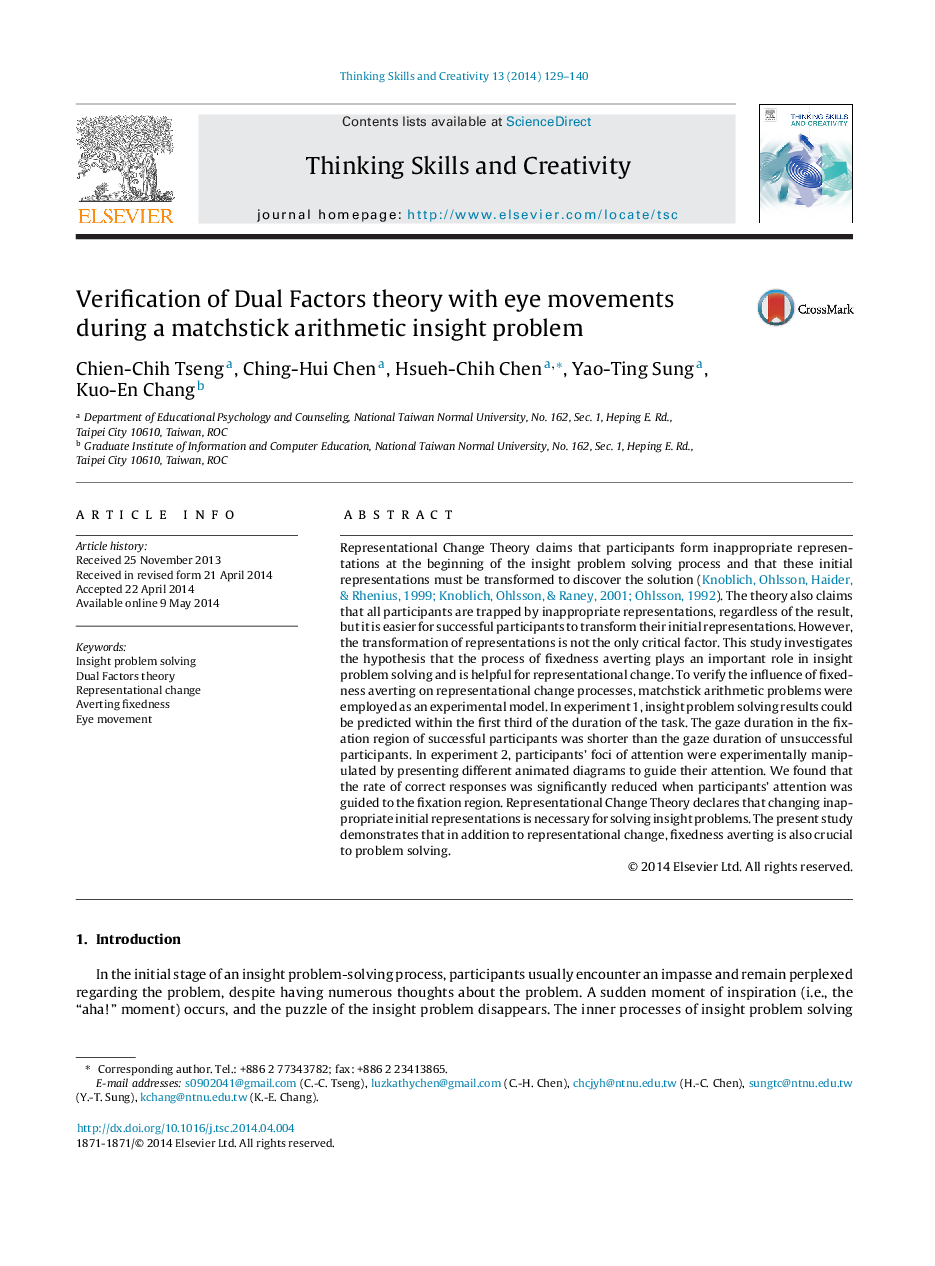| Article ID | Journal | Published Year | Pages | File Type |
|---|---|---|---|---|
| 6852101 | Thinking Skills and Creativity | 2014 | 12 Pages |
Abstract
Representational Change Theory claims that participants form inappropriate representations at the beginning of the insight problem solving process and that these initial representations must be transformed to discover the solution (Knoblich et al., 1999, Knoblich et al., 2001, Ohlsson, 1992). The theory also claims that all participants are trapped by inappropriate representations, regardless of the result, but it is easier for successful participants to transform their initial representations. However, the transformation of representations is not the only critical factor. This study investigates the hypothesis that the process of fixedness averting plays an important role in insight problem solving and is helpful for representational change. To verify the influence of fixedness averting on representational change processes, matchstick arithmetic problems were employed as an experimental model. In experiment 1, insight problem solving results could be predicted within the first third of the duration of the task. The gaze duration in the fixation region of successful participants was shorter than the gaze duration of unsuccessful participants. In experiment 2, participants' foci of attention were experimentally manipulated by presenting different animated diagrams to guide their attention. We found that the rate of correct responses was significantly reduced when participants' attention was guided to the fixation region. Representational Change Theory declares that changing inappropriate initial representations is necessary for solving insight problems. The present study demonstrates that in addition to representational change, fixedness averting is also crucial to problem solving.
Related Topics
Social Sciences and Humanities
Psychology
Developmental and Educational Psychology
Authors
Chien-Chih Tseng, Ching-Hui Chen, Hsueh-Chih Chen, Yao-Ting Sung, Kuo-En Chang,
